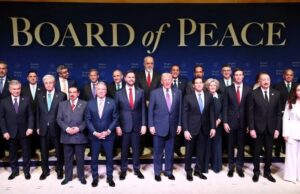King Mohammed VI Appoints Brigadier General Abdellah Boutrig as Head of Morocco’s Cybersecurity Directorate

Rabat, The Gulf Observer: King Mohammed VI, Supreme Commander and Chief of General Staff of the Royal Armed Forces (FAR), has appointed Brigadier General Abdellah Boutrig as Director General of the General Directorate of Information Systems Security (DGSSI). He succeeds Brigadier General El Mostapha Rabii in this role.
An engineer by training from the National Institute of Statistics and Applied Economics (INSEA) and a graduate of the Royal Military Academy of Meknes (class of 1987), General Boutrig also holds a staff course diploma, an advanced defense course certificate, and a master’s degree in security and defense from the Royal College of Advanced Military Studies.
Throughout his career, he has held several key positions, including Director of Assistance, Training, Control and Expertise at the DGSSI and Deputy Inspector of Transmissions for the FAR. His appointment underscores Morocco’s continued efforts to strengthen cybersecurity and safeguard its national cyberspace, a strategic priority in the country’s digital transition.
The DGSSI, established by Decree No. 2-11-509 of September 21, 2011, under the National Defense Administration, serves as Morocco’s principal authority for state cybersecurity. It oversees national policies and standards, manages the National Directive on Information Systems Security (DNSSI), and operates maCERT, the national computer emergency response team tasked with monitoring, detecting, and coordinating responses to cyber incidents. The directorate also leads national governance mechanisms and the Strategic Cybersecurity Committee under Morocco’s cybersecurity law framework.
In July 2024, the DGSSI presented its National Cybersecurity Strategy for 2030, designed to build a reliable, secure, and resilient cyberspace to support digital transformation, economic growth, and citizen welfare. The strategy is structured around four pillars, 11 strategic objectives, 26 initiatives, and 60 actions. These pillars focus on strengthening governance, enhancing national cyberspace security and resilience, building human and institutional capacity, and expanding international cooperation in cybersecurity.
Boutrig’s appointment is seen as a step toward further consolidating Morocco’s national cybersecurity architecture and ensuring the effective implementation of the 2030 strategy.


